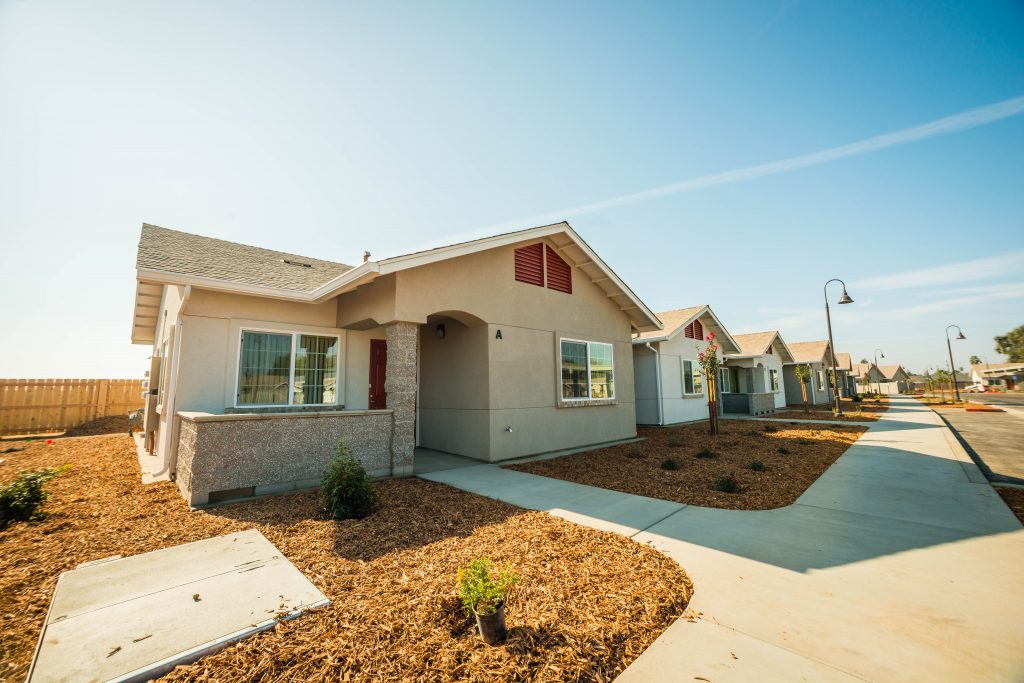Effects of Tax Reform on Affordable Housing
Effects of Tax Reform on Affordable Housing

Posted on November 28, 2017
Often lost in the broader political conversation around tax reform are the effects of tax law on affordable housing. It was the last major tax overhaul in 1986 that created the Low Income Housing Tax Credit (LIHTC), setting a course for private investment to become the cornerstone of affordable rental housing development for these past 30+ years.
Both the House tax bill and the expected Senate version retain the much-coveted 9% LIHTC program, with lawmakers clearly seeing the value of this important generator of rental housing new construction projects around the country. However, the House bill as passed would do away with the lesser known – although much more prolific overall – 4% LIHTC by removing the tax exemptions for Private Activity Bonds, which is the only way to access these tax credits. In California, approximately 80% of affordable rental housing units are built or repaired through the 4% LIHTC program. Last year this amounted to over 20,000 affordable homes in our state!
Both the House bill and the likely Senate bill also will dramatically lower corporate tax rates from 35% to 20%. Regardless of one’s view about whether this will be advantageous to the overall economy, there is one unquestioned effect – the value of LIHTCs will plummet. We have already seen a reduction in pricing for our current tax credits, merely because of the prospect of corporate tax relief.
By far the largest housing subsidy program in America is the Mortgage Interest Deduction taken by homeowners who itemize on their tax returns, the vast majority of whom are not low income. The House bill would limit this deduction to $500,000 in mortgage borrowing, while the Senate bill is expected to maintain the status quo (which caps the deduction at $1 million). While we would prefer the House proposal to dedicate increased tax revenue from such a change to affordable low-income housing assistance we applaud the courage to take on this sacred tax break.
Ultimately, if tax reform is to happen in the current Congress, the final product will be a hybrid that both the House and Senate must pass. Our preferences would be (1) maintain the tax exemption for Private Activity Bonds and thereby 4% LIHTCs, (2) a more modest reduction in the corporate tax rate – somewhere between 25% and 30%, and (3) limit the mortgage interest deduction to a single residence with a $500,000 cap. If you care about affordable housing, it would be a good idea to let your legislators know how you feel in the next week or two as final decisions are made.
To contact your legislators, call the Capitol Switchboard at (202) 224-1321 or click here to find your representative.
Recent Posts
Recent Comments
Archives
- June 2025
- May 2025
- April 2025
- February 2025
- January 2025
- December 2024
- November 2024
- October 2024
- September 2024
- August 2024
- July 2024
- June 2024
- April 2024
- February 2024
- January 2024
- December 2023
- October 2023
- September 2023
- August 2023
- July 2023
- June 2023
- May 2023
- April 2023
- March 2023
- February 2023
- December 2022
- October 2022
- September 2022
- August 2022
- July 2022
- May 2022
- December 2021
- October 2021
- September 2021
- August 2021
- July 2021
- June 2021
- May 2021
- April 2021
- March 2021
- January 2021
- December 2020
- November 2020
- October 2020
- September 2020
- July 2020
- June 2020
- May 2020
- April 2020
- March 2020
- February 2020
- January 2020
- December 2019
- November 2019
- October 2019
- September 2019
- August 2019
- July 2019
- June 2019
- May 2019
- April 2019
- March 2019
- February 2019
- January 2019
- December 2018
- November 2018
- October 2018
- September 2018
- August 2018
- July 2018
- June 2018
- May 2018
- April 2018
- March 2018
- February 2018
- January 2018
- December 2017
- November 2017
- October 2017
- September 2017
- August 2017
- July 2017
- June 2017
- May 2017
- April 2017
- March 2017
- February 2017
- January 2017
- December 2016
- November 2016
- October 2016
- September 2016
- August 2016
- July 2016
- June 2016
- May 2016
- April 2016
- March 2016
- February 2016
- December 2015
- November 2015
- October 2015
- September 2015
- August 2015
- July 2015
- June 2015
- May 2015
- April 2015
- February 2015
